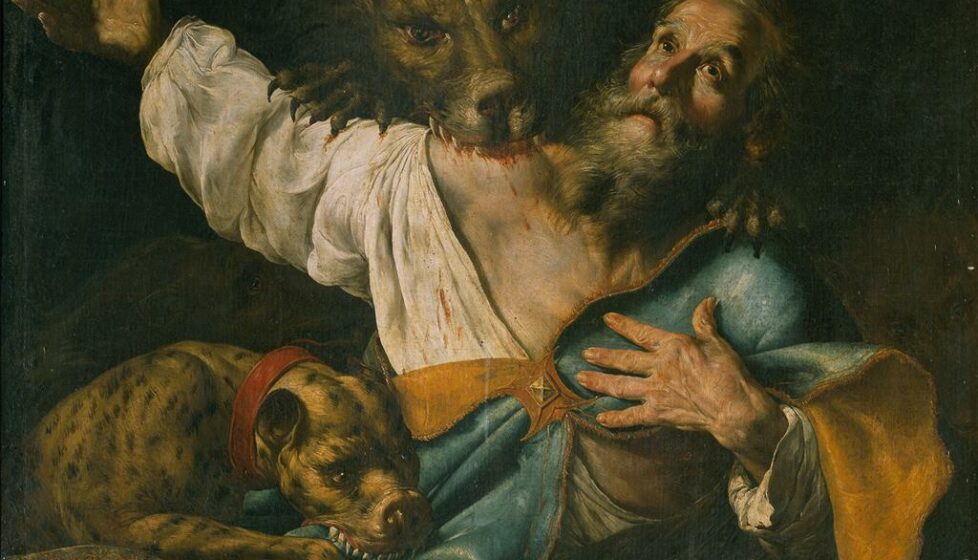Stories of Christian Martyrs: Telemachus
Rome

In the Greek myths, the character Telemachus (meaning “far-away
fighter”) was a timid and diffident child. But as an adult he defended
the honor of those he loved and became a fighter and a hero. Unlike
his mythological counterpart, the fourth-century monk Telemachus was
anything but a fighter. Or perhaps it can be argued that his greatest fight
was his effort to eradicate fighting.
An ascetic hermit from the East and unknown except for his final
act, Telemachus journeyed to Rome just in time for the victory celebrations. After years of aggressive invasions from the continent, Rome had finally defeated the Goth king Alaric in northern Italy in 403.
As was common in those times, extravagant gladiatorial contests were
held in celebration of military victories. The twenty-year-old emperor
Honorius decreed that this particular celebration would be held in the
50,000-capacity Coliseum, a battleground named for the colossal 130-
foot statue of Nero nearby, the emperor made famous for condemning
Christians into human torches. If there was one place in all of Rome that
a pacifist Christian might consider avoiding, the Coliseum was it. Telemachus, a “rudely clad man of rough but imposing presence,” resolved to interrupt, indeed to stop, the bloody contest in the Coliseum.

Thousands had gathered that day. Cries of “habet, hoc habet”
erupted from the crowds—“He has had it!” they cried every time a
fighter was mortally wounded. In this atmosphere Telemachus jumped
from the crowd into the arena itself, no longer spectator but activist,
peacemaker, preacher.
“Do not requite God’s mercy,” he screamed, “in turning away the
swords of your enemies by murdering each other!” Certainly the crowd
heard him, but the gladiators continued fighting. Telemachus ran
between the gladiators, pleading with them to stop. “Sedition! Sedition!
Down with him!” roared the crowd. “This is no place for preaching! The old customs of Rome must be observed! On, gladiators!” Still, Telemachus continued to turn from one encounter to another, stopping gladiators in mid-fight. Then, frustrated by the annoyance of one man
interrupting the games, someone pulled a sword and, thrusting it,
Telemachus fell. Joining in, the crowd threw stones down from their seats
to the arena below.
News quickly spread throughout Rome that the murdered man was
the hermit Telemachus. Rome was shocked, as was Emperor Honorius,
that such a gentle man had been slain. Telemachus’s courage and boldness
to speak God’s mercy and love changed the games forever. A man bent
on peace, Telemachus lost his life fighting in the grandest battleground
of Rome. Soon after his death, gladiatorial battles were banned from the
Coliseum. Telemachus had achieved the impossible.
“For to this you have been
called, because Christ also
suffered for you, leaving you
an example, so that you
might follow in his steps.
He committed no sin, neither
was deceit found in his mouth.
When he was reviled, he did
not revile in return; when
he suffered, he did not
threaten, but continued
entrusting himself to him
who judges justly.”
1 Peter 2:21-23
This story is an excerpt from Foxe: Voices of the Martyrs. You can get your own copy free with any donation to The Voice of the Martyrs.

